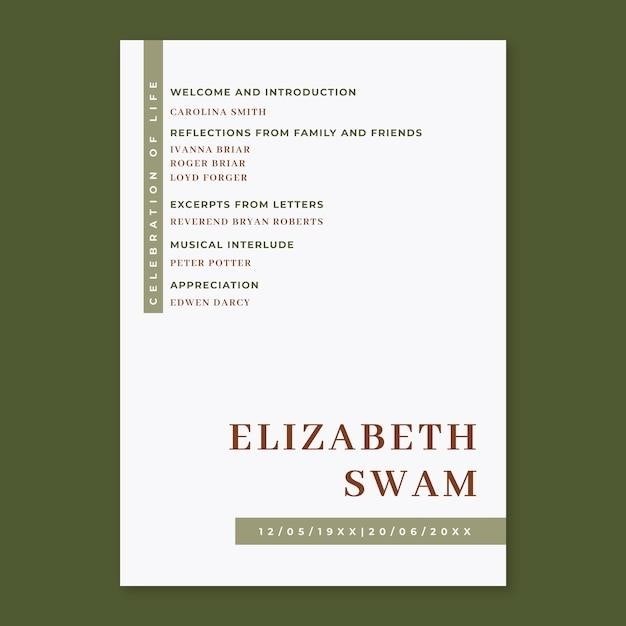
Overview of Old Testament Surveys
Old Testament surveys provide a comprehensive exploration of the Hebrew Bible, examining its historical context, literary features, theological themes, and relevance to contemporary life․
Purpose and Scope
Old Testament surveys aim to provide a comprehensive understanding of the Hebrew Bible, encompassing its historical context, literary features, and theological themes․ These surveys delve into the individual books of the Old Testament, exploring their unique messages and contributions to the overall narrative․ They also examine the connections between various books, revealing how they contribute to a unified message․ By exploring the Old Testament’s historical context, surveys help readers understand the cultural and societal influences that shaped the text, providing insights into the lives and beliefs of the ancient Israelites․
Key Themes and Message
Old Testament surveys highlight key themes that permeate the Hebrew Bible, revealing a unified message․ These themes include God’s covenant with his people, the importance of obedience and faithfulness, the consequences of sin, and the promise of redemption․ The Old Testament emphasizes God’s sovereignty and his unwavering love for his people, despite their failures․ It also explores the nature of justice, the importance of social responsibility, and the role of prophets in challenging societal injustices․ The overarching message of the Old Testament points towards God’s ultimate plan for salvation and the coming of a Messiah who will redeem humanity from sin․
Types of Old Testament Surveys
Old Testament surveys are offered in a variety of formats, each with unique strengths and perspectives․
Christ-Centered Approaches
Christ-centered Old Testament surveys emphasize the foreshadowing of Jesus Christ and his redemptive work throughout the Hebrew Scriptures․ These surveys highlight themes like the coming Messiah, the sacrificial system, and the covenant promises that find their fulfillment in Jesus․ They often draw connections between Old Testament prophecies and New Testament events, emphasizing the continuity of God’s plan for salvation․ For example, “The Old Testament Survey I⁚ A Christ-Centered Approach to Studying Jesus Bible” is intended to survey the message of the Old Testament, both at the individual book level and at the canonical level, with a specific focus on how the Old Testament points to Jesus․
Historical and Literary Surveys
Historical and literary surveys of the Old Testament prioritize understanding the biblical text within its historical and literary context․ These surveys analyze the historical events, cultural background, and literary genres of each book․ They explore the authors’ intentions, the development of Israelite history, and the literary devices used to convey the message․ For instance, a historical and literary survey might delve into the historical setting of the Exodus, analyzing the literary structure of the book of Exodus, and exploring the different genres present in the Pentateuch․ This approach emphasizes a deep understanding of the text’s original meaning and how it functioned within its time and place․
Theological Surveys
Theological surveys of the Old Testament delve into the central theological themes and doctrines presented in the Hebrew Bible․ These surveys examine the nature of God, the covenant relationship between God and humanity, the role of Israel, the concept of salvation, and the promises of the Messiah․ They explore the development of these themes throughout the Old Testament and how they foreshadow the New Testament․ For example, a theological survey might analyze the concept of the “suffering servant” in Isaiah 53, exploring its connections to Christology and its relevance to the New Testament understanding of Jesus․ Theological surveys provide a framework for understanding the deeper meaning and relevance of the Old Testament to Christian faith and theology․

Resources for Old Testament Surveys
A wealth of resources are available to aid in the study of the Old Testament, offering a variety of approaches and perspectives․
Textbooks and Study Guides
Numerous textbooks and study guides provide a structured framework for exploring the Old Testament․ These resources often feature comprehensive overviews of each book, historical and literary analysis, theological themes, and connections to the New Testament․ Some popular options include “A Survey of the Old Testament” by Gleason L․ Archer, “The Old Testament⁚ A Historical and Theological Introduction” by Walter C․ Kaiser Jr․, and “The Old Testament⁚ Its Background and Message” by John H․ Walton and Andrew E․ Hill․ These books serve as valuable companions for individual study or classroom use, offering detailed insights and engaging discussions․
Online Courses and Lectures
The digital age has opened up new avenues for studying the Old Testament․ Many institutions and organizations offer online courses and lectures, providing accessible and convenient learning opportunities․ Platforms like Coursera, edX, and iTunes U host a variety of courses, often taught by renowned scholars․ These courses delve into the Old Testament’s historical, literary, and theological dimensions, offering interactive learning experiences with video lectures, readings, and discussion forums․ Online lectures from institutions like Moody Bible Institute and the University of Oxford provide insightful perspectives on specific books or themes, expanding access to scholarly insights for a wider audience․
Academic Journals and Articles
For in-depth scholarly exploration of the Old Testament, academic journals and articles are indispensable resources․ Publications like the Journal of Biblical Literature, Vetus Testamentum, and the Journal of the Evangelical Theological Society feature cutting-edge research on various aspects of the Hebrew Bible․ These journals contain articles by leading scholars, offering critical analysis, textual interpretation, and historical contextualization․ Online databases like JSTOR and ATLA Religion Database provide access to a vast archive of scholarly articles, enabling researchers to delve into specific topics, methodologies, and debates within Old Testament studies․ The wealth of information available through these resources allows for a nuanced and informed understanding of the complexities of the Hebrew Bible․
Benefits of Studying the Old Testament
Engaging with the Old Testament offers a profound understanding of God’s character, plan, and redemptive work in the world․
Understanding God’s Character and Plan
The Old Testament reveals God’s attributes, including his holiness, justice, love, mercy, and faithfulness․ It showcases his unwavering commitment to his people, despite their failings․ The Old Testament narratives, laws, and prophecies unveil God’s grand design for creation, humanity, and redemption․ Through studying these texts, we gain a deeper understanding of his purpose for the world and our place within it․ The Old Testament serves as a foundation for understanding God’s character and plan, providing insights into the nature of God and his ongoing work in the world․
Gaining Insight into the New Testament
The Old Testament serves as a foundation for understanding the New Testament․ It foreshadows key events, characters, and themes that are fulfilled in the life, death, and resurrection of Jesus Christ․ The New Testament writers frequently refer to and interpret Old Testament passages, highlighting their significance for understanding the gospel message․ A thorough study of the Old Testament enriches our understanding of the New Testament, providing a deeper appreciation for the continuity and unity of God’s plan throughout history․
Applying Old Testament Principles to Life
The Old Testament is not merely a historical record; it is a living and relevant text that offers wisdom and guidance for everyday life․ Its narratives, laws, and poetry provide timeless principles for navigating relationships, making ethical decisions, and living a life that honors God․ By studying the Old Testament, we can glean insights into topics such as justice, compassion, forgiveness, and the pursuit of righteousness, applying these principles to our own lives and contributing to a more just and compassionate world․
The Old Testament continues to be a vital resource for understanding God’s character and plan, enriching our understanding of the New Testament, and guiding our lives․
The Importance of Continued Study
Engaging with the Old Testament is an ongoing journey․ Continuous study allows for deeper understanding and appreciation of its rich tapestry of narratives, poetry, law, and prophecy․ As we delve into its complexities, we uncover new insights into God’s character, his redemptive plan, and the interconnectedness of the Old and New Testaments․ The Old Testament, far from being a relic of the past, offers timeless wisdom and profound truths that continue to resonate with contemporary readers․
Resources for Further Exploration
The exploration of the Old Testament doesn’t end with a survey․ Numerous resources are available for those seeking to delve deeper․ Academic journals offer scholarly articles on specific books, themes, and historical contexts․ Online courses and lectures provide in-depth analysis from renowned scholars; Textbooks and study guides provide comprehensive coverage of the Old Testament, offering detailed commentaries and insights into its historical and theological significance․



